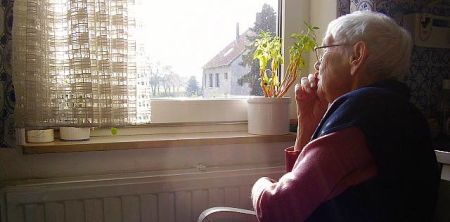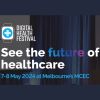The interconnection of home- and hospital-based devices will allow medical caregivers to monitor elderly patients in their homes, reducing preventable hospitalisations, which stress senior patients and the facilities, which provide care to them. The “closed-loop healthcare” system being developed by researchers at the University of Missouri was presented last week at the SmartAmerica Challenge Expo in Washington, DC.
Home-Based Health Monitoring
A system that would allow healthcare providers to monitor seniors in their homes will be advantageous for elderly patients and their caregivers. Data from sensors and cameras will allow a more rapid response to accidents that occur in the home, where many elderly people live alone. A series of sensors that detect falls or other life-endangering events can initiate calls for immediate help, and video evidence will help doctors to educate patients on the prevention of similar events.
Importantly, such a system will one day reduce the number of non-essential hospitalisations, the researchers believe. A study conducted by the Robert Wood Johnson Foundations found that $31 billion are spent annually on adult hospitalisations, some of which might have been avoided through a coordinated exchange of patient data. If known medical concerns can be closely followed by physician and other staff, the development of acute conditions can be prevented.
Biometric Data Transfer
Marjorie Skubic, one of the lead researchers and a professor of electrical and computer engineering at MU College of Engineering, said in a recent press release that more coordinated care will reduce the risk of complications for senior patients. “As patients transfer between care units, sensor data are automatically delivered to their bedsides by the integrated healthcare platform. When patients return home, the system continues to track their activity, behaviours and vital signs and send alerts if health changes are detected.”
Sensors in a patient’s home can detect both biometric data, like heart and respiration rates, and patterns of movement such as bathroom use and walking. Ultimately, the streamlined healthcare will result in cost savings, improved care and better outcomes for patients, according to the researchers.
Ongoing Research
The “closed-loop healthcare” system has been under development for more than 10 years. Skubic and her team hope that one day its reach will extend nationwide. “These ‘smart home’ systems have the potential to create tremendous cost savings for individuals and healthcare systems, especially if used throughout the country,” she said.
Julie Goldman of Harvard University leads the project along with Skubic. Their team includes colleagues from Beth Israel Deaconess Medical Center, the Departments of Defense and Veterans Affairs, IEEE, Massachusetts General Hospital, The University of Pennsylvania, Vanderbilt University and Worcester Polytechnic Institute.
Photo Credit: Google Images / Flickr
Latest Articles
patient data, IT solutions, elderly patients, hospital, home monitoring, patient care
The interconnection of home- and hospital-based devices will allow medical caregivers to monitor elderly patients in their homes, reducing preventable hosp...



























